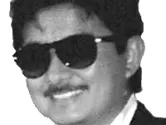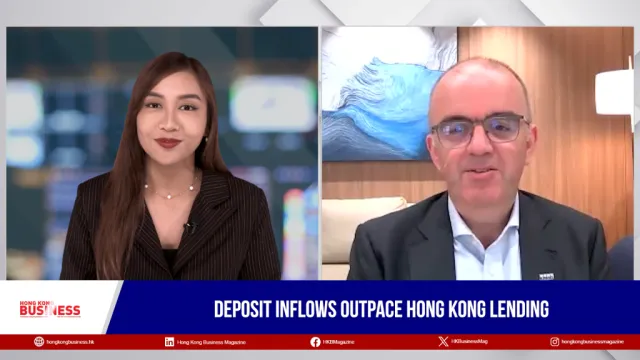6 powerful people who enforced the power of legitimacy
By Allan Eu ??? The strategic structure of the appearance of legitimacy started in 1913 at Jekyll Island, Georgia; hence, the birth of the US Federal Reserve System.
There were six powerful figures who followed the vision, planned, architected and enforced the secret plot:

1. Nelson W. Aldrich, US Senator, chairman of the National Monetary Commission, father-in-law to John D. Rockefeller, Jr.
2. Abraham Piatt Andrew, assistant Secretary of the US Treasury.
3. Frank A. Vanderlip, president of the National City Bank of New York.
4. Henry P. Davison, senior partner of the J.P Morgan Company.
5. Benjamin Strong, head of J.P. Morgan’s Bankers Trust Company.
6. Paul M. Warburg, a partner in Kuhn, Loeb & Company, a representative of the Rothschild
Banking Dynasty in England and France; and brother to Max Warburg who was head of the Warburg banking consortium in Germany and the Netherlands.
The plot was to maximize profits by minimizing competition between members; to make it difficult for new competitors to enter the field, and to utilize the police power of the government to enforce the Federal Reserve System…the banking cartel’s conspiracy.
This group of six men represented one sixth of the total wealth of the world at the time! When the Federal Reserve System was written into law the Grand-Hijack has begun; thus, whipping out national banks and anything that was outside of the Cartel…assassination of competition.
Together with Big Corporations the Banksters intervened the free market and tip the balance of interest rates downward to favor debt over thrift. In order to accomplish this, the money supply simply had to be disconnected from gold; thus, making their banknotes more “elastic” which enable them to issue more promises to “pay-on-demand” than actual money they have in their vaults.
The promise-to-pay often exceeds savings deposit by a factor of ten-to-one. This kind of reserve pyramiding is “currency-drain” and “bank runs” waiting to happen.
Here were the main challenges this powerful group of six faced:
1. How to stop the growing influence of small, rival banks and to insure that control over the nation’s financial resources would remain in the hands of those present;
2. How to make the money supply more elastic in order to reverse the trend of private capital formation and to recapture the industrial loan market;
3. How to pool the meager reserves of the nation’s banks into one large reserve so that all banks will be motivated to follow the same loan-to-deposit ratios. This would protect at least some of them from currency drains and bank runs;
4. Should this lead eventually to the collapse of the whole banking system, then how to shift the losses from the owners of the banks to the taxpayers.
The Cartel established a name
Everyone knows that the solution to all these problems was a cartel mechanism that had been devised and already put into similar operation in Europe.
As with all cartels, it had to be created by legislation and sustained by the power of government under the deception of protecting the consumer. The most important task before them, therefore, can be stated as objective number
5. How to convince Congress that the scheme was a measure to protect the public.
The task was a delicate one. The American people did not like the concept of a cartel. The idea of business enterprises joining together to fix prices and prevent competition was alien to the free-enterprise system. It could never be sold to the voters. But, if the word cartel was not used, if the venture could be described with words which are emotionally neutral – perhaps even alluring – then half the battle would be won.
An expert on the European model of a central bank among the group was Paul Warburg who named it “Federal Reserve System” (he was also a representative of the Rothschild Banking Dynasty.)
As I have mentioned before by the end of the nineteenth century there were nine foreign banks with forty-five branches in China's treaty ports and in 1946 the International Bank for Reconstruction and Development (otherwise known as the World Bank) was formed.
They were unregulated by the Chinese government therefore they were free to issue banknotes for circulation, accept deposits from Chinese citizens and the Cartel’s influence was established in Asia.
Consequently, what goes on with the US Federal Reserve System absolutely affects Hong Kong. The sooner Hong Kong de-pegs from the “fiat” dollar the better; after all, how prestigious is a worthless piece of paper backed by a Ponzi artist?
Lastly, there are a number of positives for gold going forward, especially for Hong Kong due to the Asia time zone advantage. I believe that the net result of Basel III ( an accord that tells a bank how much capital it must hold to safeguard its solvency and overall economic stability by the Federal Reserve.)
At the top of the proposed changes is the new list of “zero-percent risk weighted items” which now includes “gold bullion,” right after “cash.” This associated adjustments to US regulations will be an increased recognition of gold’s safe-haven status across all markets which translates into higher global demand for the metal next year, and a concomitant increase in its price.
“In the name of Bailout”… next month.




















 Advertise
Advertise









